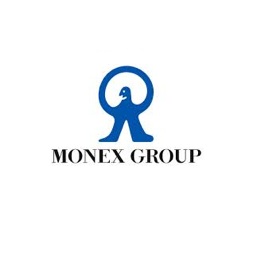
As volatility in FX markets looks to slingshot upwards, Toshihiko Katsuya, President at Monex FX, explains how the group has adapted and positioned itself during a historically tranquil market. Part two of his interview can be read in full below.
1) How has Monex in particular adapted to the decreased Forex volumes and do you view this as a temporary trend or long-term?
As I mentioned earlier, Monex has had to deal with lower volatilities with the USD/JPY, so we are trying to have our customers diversify their trading portfolio. Moreover, we are trying to attract clients to trade other currency pairs like AUD/JPY, EUR/USD and EUR/JPY.
Unlike Western countries, the USD straight pairs’ spread is not as tight in Japan, so as a broker it is much better to market these pairs compared to the USD/JPY. Moreover, Monex went into strategic partnership with a Danish company, Tradable ApS, last year. We have good relations with them and its parent company, CFH Group, and Monex has been licensed to tradable’s platform. We started offering demo accounts for customers and probably within one month or so we will start actual trading with customers.
2) Do other Japanese brokers utilize this same strategy?
Brokers can compete in a variety of ways in Japan, such as ultra tight spreads as seen in GMO Click and DMM. There are some other brokers that try to attract customers through their platform functionality. Money Square Japan is a very unique company as they offer a very automatic Trading Platform – also Invast Securities has an alliance with Tradency and they market the mirror trade in Japan successfully. Thus, brokers in Japan compete either through the price or the platform. The tradable platform is now exclusive onto Monex at this juncture so it’s very important to differentiate ourselves from our competitors in this respect.
3) In what areas does Monex feel are its biggest sources for growth, whether across number of accounts or actual forex volumes?
Monex currently has more than 200,000 OTC forex customers and out of that the number of current active accounts is 62,000 so we have a good portion of Japanese customers. It’s very important to increase the number of accounts but also have traders trade more. The number of retail forex accounts in Japan was 5.2 million as of March 2014, and the amount of margin deposit is ¥1.1 trillion, but when we compare these numbers to the 17 million accounts of online securities there is a huge white space for forex accounts to grow.
Forex brokers also have room for a lot of growth. As for the margin deposit, there is about ¥6 trillion at the bank for foreign currency deposits. Many Japanese bank customers pay huge spreads to banks and they can only withdraw their USD or EUR at bank branches. I think it’s more economical to trade in forex rather than make foreign currency deposits in banks with wide bank spread. Since Japan only has about ¥1.1 trillion in forex margin and we have nearly 5x more money sitting at the bank, we can go after a portion of this as opposed for people simply making bank deposits.

4) Has Monex seen a swell of Chinese clients or do you foresee this happening anytime soon?
Actually we have not seen a large increase in Chinese customers. However as Monex Group we have a large forex offering in Japan, the US and Australia. In Japan, we don’t see many Chinese investors or active traders – I believe this is because leverage ratios are lower than other countries. We do have IBFX in the US and its subsidiary in Australia and these have many Chinese customers however. Chinese customers enjoy higher leverage in IBFX Australia. By way of introducing brokers in China, Chinese traders trade more than ever before in IBFX Australia.
We considered launching Renminbi or CNH trading but because of lower volatility right now there is less demand for these pairs right now in Japan. I know there are some other Japanese brokers who do offer Chinese currency pairs. Monex is watching these brokers, and if the demand grows we will certainly offer exposure in that currency pair.


















